1/3 of newspapers gone in 2 years; what about in Asheville, WNC?
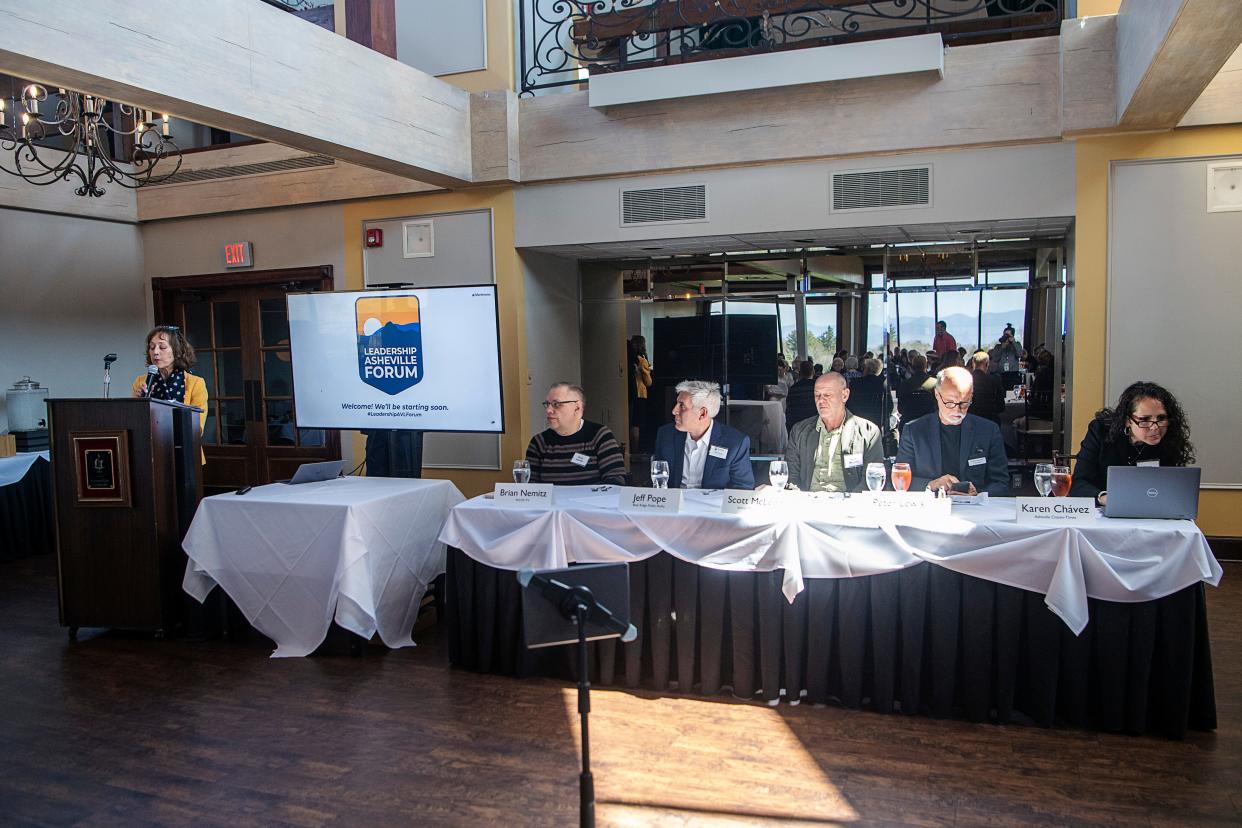
ASHEVILLE - Since 2005, the country has seen a quarter of its newspapers fold and is on track to lose a third by 2025, according to researchers who called the trend a crisis for democracy and whose numbers were the backdrop to a forum on the status of Western North Carolina's local news.
In and around Asheville, journalism is strong, said participants in the Feb. 22 Leadership Asheville Forum, from print, digital, television and radio news. But they sounded alarm bells over the viability of the 11 newspapers in the seven counties to the west.
"I think a lot of those papers are just hanging on by a string," Smoky Mountain News Publisher Scott McLeod told the nearly 120 attendees packed into the Asheville Country Club banquet hall.
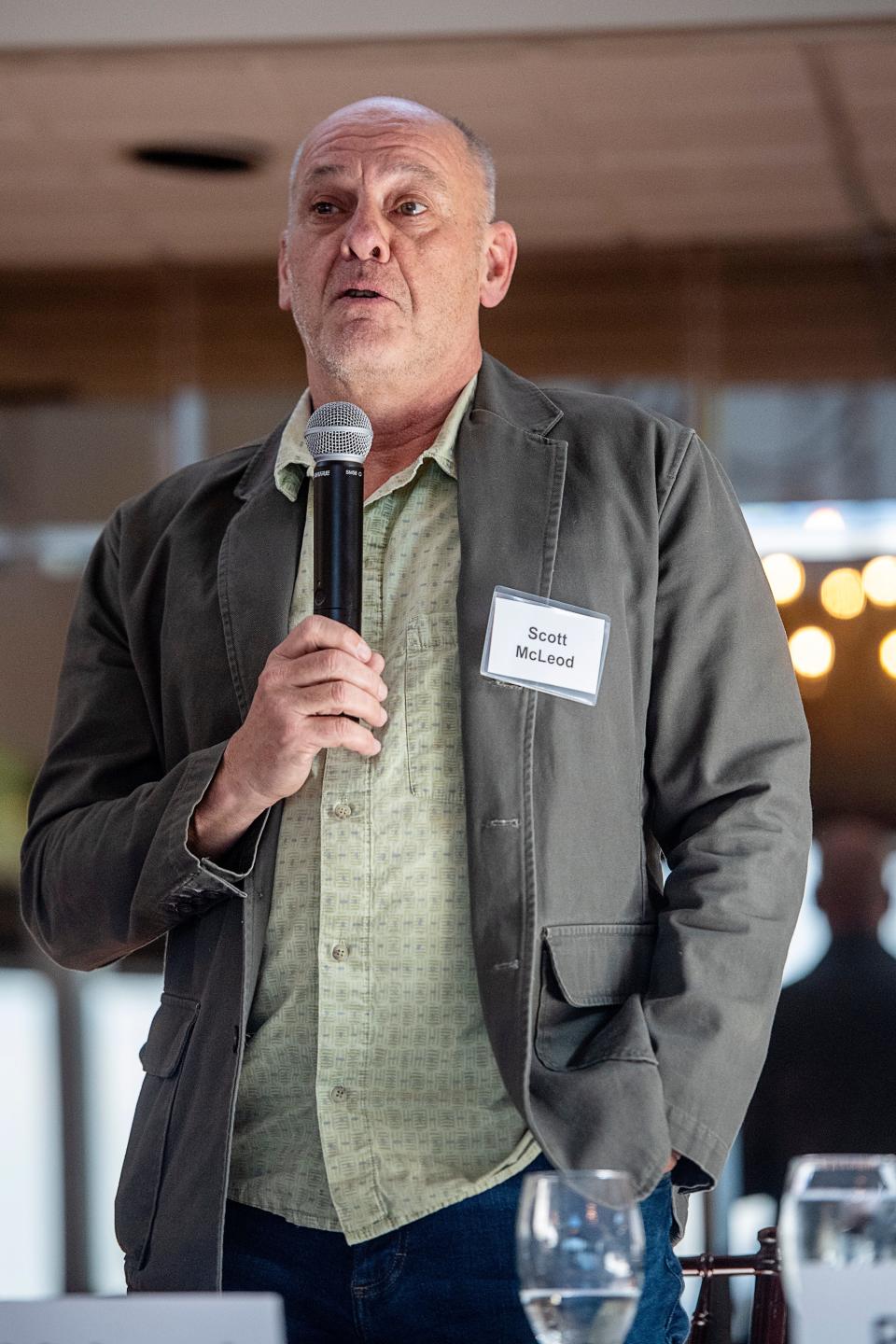
To keep WNC journalism alive, participants said they need financial support − through subscriptions and donations − as well as engagement from residents who care about their communities.
"Journalism is a community effort," said Asheville Citizen Times Interim Executive Editor Karen Chávez, who has worked as a reporter and editor for the daily newspaper since 2000.
More:Police bodycams, walking kids to school: Citizen Times stories with impact in 2022
More:Why you should sign up for an Asheville Citizen Times subscription? Let me count the ways
Participants were WLOS-TV News Director Brian Nemitz, Blue Ridge Public Radio General Manager Jeff Pope, McLeod from the Smoky Mountain News, Asheville Watchdog Managing Editor Peter Lewis and Chávez from the Citizen Times.
Forum moderator Tim Collins cited sobering figures from Northwestern University's 2022 State of Local News report that said the country has lost 25% of its newspapers − 2,500 − in 17 years and is on track to see a third go away by 2025. More than 20% of U.S. residents now live in communities deemed "news deserts − with limited or no access to local news," he said, while many others live in "drying territories" with local reporting in serious decline.
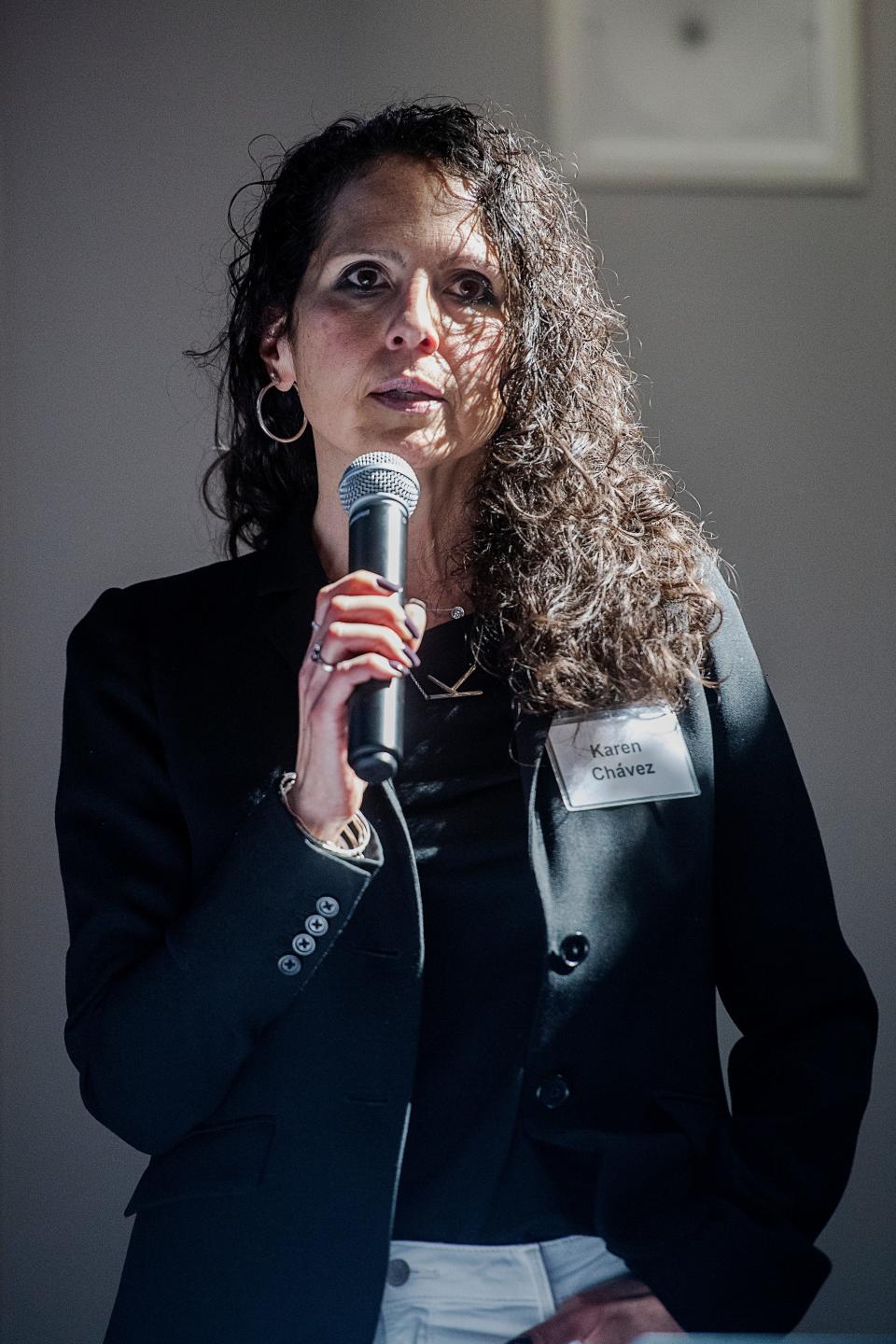
Behind the decline is newspaper industry consolidation, economic recession impacting advertisers, control of digital advertising by "big players," lack of digital infrastructure and insufficient support for nonprofit news organizations, Collins said. The consequences include political polarization, increased government corruption and "less awareness of and commitment to democracy," he said.
Asheville is not among those communities, according to participants.
"We are definitely not a news desert in Asheville, Buncombe County," Chávez said. "And that makes us very fortunate. We have an extremely robust local journalism scene."
More:Vermont Avenue trees come down to make way for sidewalks; West Asheville neighbors mourn
More:Ex-capt. told employee she could leave to care for her kids in exchange for sex: lawsuit
More:Canton family’s 'nightmare' birth malpractice lawsuit against Mission gets trial date
More:Food Network's 'Spring Baking Championship' to feature WNC pastry chef
Online subscriptions or "paywalls" are one new important revenue source, along with donations for nonprofit organizations, she and others said.
While there has been a reduction in the printed news product, digital interest has increased, with Citizen Times online subscriptions up 55% in recent years, Chávez said. She credited work she said resonated with readers, such as the reversal of a decision by the county's largest apartment owner not to take government rental assistance after Citizen Times coverage or the newspaper successfully convincing courts to release police body camera footage.
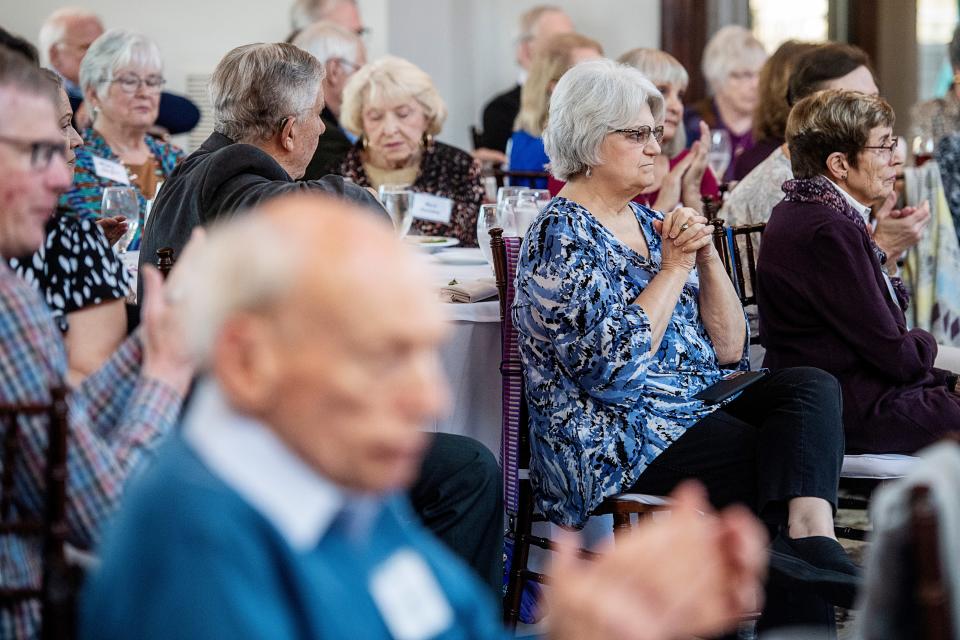
More:Police bodycams, walking kids to school: Citizen Times stories with impact in 2022
Asheville Watchdog looked to help by founding in 2020 a group of mostly volunteer retired journalists from the New York Times, Miami Herald and other major metro papers, Lewis said. That staff would focus on investigatory reporting to give it to other news organizations.
"We decided that we didn't want to compete with other media. The Watchdog was founded to support local media, we don't sell advertising against anybody else," he said.
In general, Pope said, "the business model is broken," and participants were looking to redefine it, with the situation more difficult in the western counties.
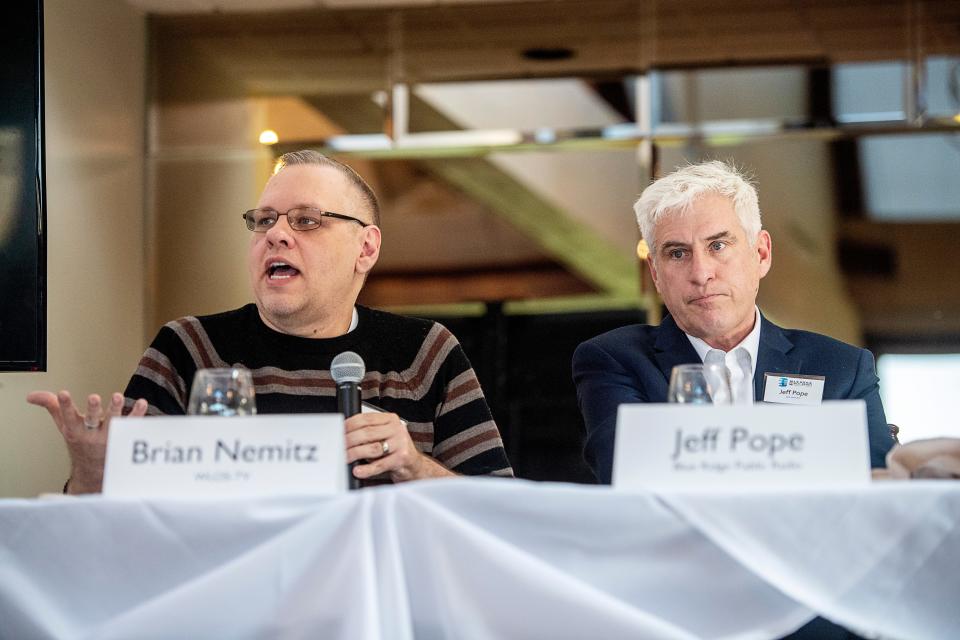
"I just had a donor say to me the other day, 'please don't call WNC a news desert. We get enough poverty mentality out here. And then he said, 'but I sure wish somebody would cover the school board in Franklin.'"
Pope called for higher pay for journalists, saying BPR was looking to provide a living wage so reporters could stay in the area "and grow." Also crucial for news organizations is community engagement, he and others said.
Because WLOS is advertiser-based, it did not need direct financial support from viewers, Nemitz said. But lack of interest from viewers is problematic, he said recounting his work with NBC in Miami where he said he helped produce "great" newscasts that drew little notice from residents who for the most part "are not very invested in the community."
"We need you to hold us accountable," he said.
Joel Burgess has lived in WNC for more than 20 years, covering politics, government and other news. He's written award-winning stories on topics ranging from gerrymandering to police use of force. Got a tip? Contact Burgess at jburgess@citizentimes.com, 828-713-1095 or on Twitter @AVLreporter. Please help support this type of journalism with a subscription to the Citizen Times.
This article originally appeared on Asheville Citizen Times: 1/3 of newspapers gone in 2 years; what about in Asheville, WNC?

